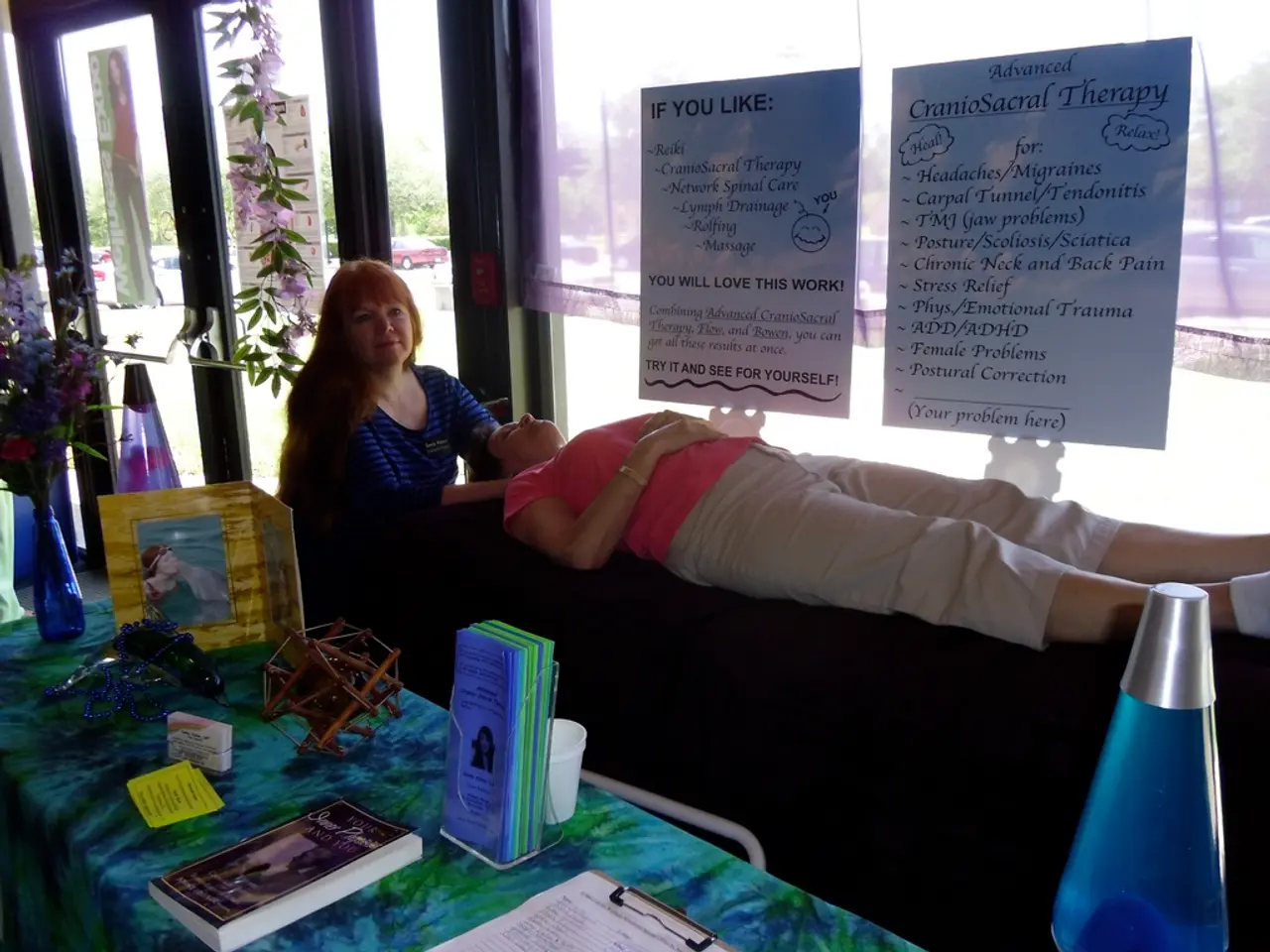Navigating Time Gaps During Psychotherapy Sessions
In a groundbreaking development, Talkcast - an AI-powered feature - is now enabling therapists to create personalised, short podcast-style audio episodes for their clients to listen to between sessions. This innovative tool offers a new way to stay connected and supported during the therapeutic journey.
Healing is a process that takes time, and it's normal to experience ups and downs. During this journey, self-care is a vital part of the emotional work done in therapy. Setting small, achievable goals can help you stay focused and motivated in between sessions, while regularly checking in with oneself to see how one is feeling can provide meaningful insights.
Exploring additional resources like mental health podcasts can support your growth and learning. Journaling can help track progress and spot trends, and it may also help manage mental health conditions like anxiety and depression. Writing down thoughts and emotions after a therapy session can aid in processing, and journaling can supercharge therapy by providing a space to explore thoughts and feelings.
Effective self-care strategies to support therapy progress outside of sessions include practicing assigned therapeutic skills regularly, engaging in mindfulness and stress-reducing activities, maintaining healthy lifestyle habits, and reflecting on thoughts and feelings through journaling.
Practicing homework or coping techniques assigned by your therapist, such as cognitive strategies or mindfulness exercises, is crucial for reinforcing learning and progress. Engaging in mindfulness practices like meditation or yoga, which help manage stress and increase self-awareness, is equally important.
Maintaining healthy habits such as getting sufficient sleep (7-9 hours), eating nutrient-rich foods, and exercising regularly to support overall mental health is also key. Spending time in nature and doing hobbies that bring enjoyment and relaxation, fostering emotional well-being, is another essential self-care action.
Setting and maintaining healthy boundaries in relationships and connecting with supportive friends and family for social support is also vital. Keeping a journal to explore your thoughts and feelings, track progress, note small wins, and prepare topics for your next therapy session can be incredibly beneficial. Celebrating small accomplishments builds confidence and motivation, reinforcing therapeutic goals.
Preparing for sessions by reflecting on goals and questions, and communicating openly with your therapist between sessions to tailor your therapeutic work, can help translate therapeutic insights into daily life, promote continuous growth, and maintain momentum between sessions, all of which enhance long-term outcomes in therapy.
Remember, self-care also includes meeting basic needs like getting enough sleep, eating regular meals, moving the body, spending time outside, seeing loved ones, and making time to rest. Getting some exercise, even with just a short walk to stretch, is an important way to help maintain emotional balance.
By incorporating these self-care strategies into your daily routine, you can make the most of your therapy sessions and support your emotional well-being outside of them.
- Journaling, which can help manage mental health conditions like anxiety and depression, is an effective self-care strategy that can supercharge therapy by providing a space to explore thoughts and feelings.
- In addition to therapy, practicing assigned coping techniques regularly, such as cognitive strategies or mindfulness exercises, can reinforce learning and progress in mental health.
- Engaging in mindfulness practices like meditation or yoga, which help manage stress and increase self-awareness, is equally important for mental health and personal growth.
- Mental-health education and self-development through resources like podcasts and books can support the therapeutic journey and contribute to overall well-being, including health-and-wellness and personal-growth.




